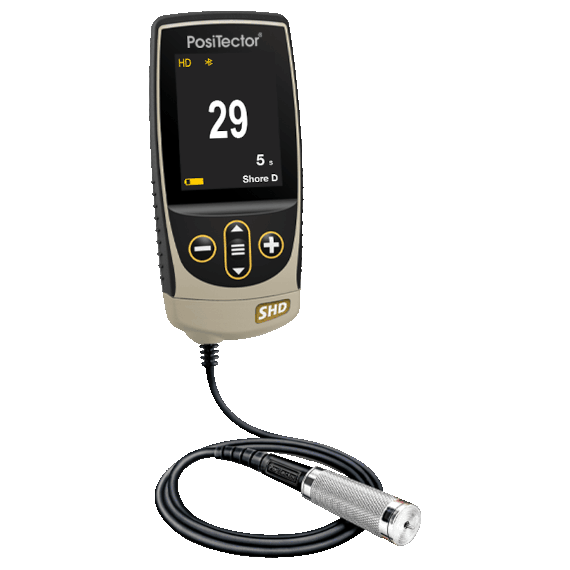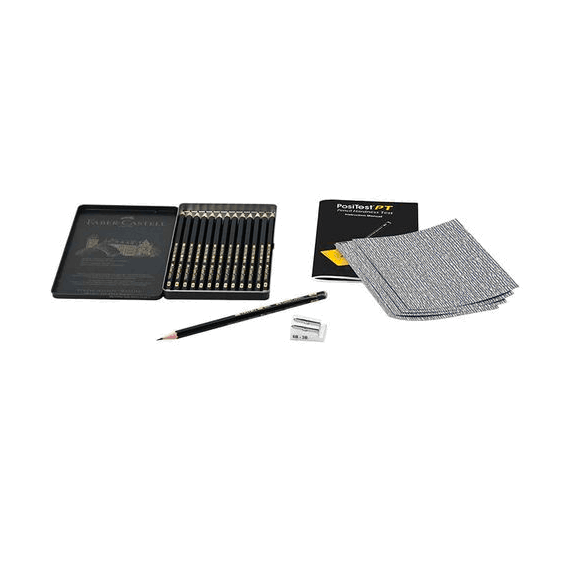Partner
DeFelsko
Hardness

Hardness
Benefit

Benefits of hardness measurement
Hardness can be defined as the resistance of a material to indentation. Hardness testing is an important step in many industries around the world, e.g. metals, fibreglass, plastics and rubber; it is often used to certify the quality of materials, test repairs and can indicate possible failure of coatings.
DeFelsko offers digital and analogue hardness testing in accordance with three different recognised hardness testing methods: Shore (A and D), Barcol and pencil hardness (Wolff-Wilborn).
Test equipment

Digital Shore hardness durometer
PosiTector SHD
Digital Shore hardness durometer: The PosiTector SHD measures the indentation hardness of non-metallic materials such as soft rubber, epoxy resin, plastics and thick coatings. Two durometer models are available for different hardness ranges - Shore A and Shore D.
Complies with the standards ASTM D2240, ISO 48-4/868/7267/7619 and DIN 53505

Digital Barcol hardness compressor
PosiTector BHI
The PosiTector BHI measures the hardness of soft metals such as aluminium, aluminium alloys, copper, brass and other materials such as harder plastics and fibre-reinforced plastics.
Complies with the standards ASTM B648/D2583, DIN EN 59 and AS/NZS 3572.22

Wolff-Wilborn pencil hardness tester
PosiTest PT
The PosiTest PT measures the hardness of coatings and films using the pencil hardness method (Wolff-Wilborn) in accordance with ISO 15184 and ASTM D3363.
Complies with standards ISO 15184, ASTM D3363, JIS K-5600, BS 3900-E19, MIL C 27 227, ECCA-T4-1, SNV 37113, SIS184187, NEN 5350